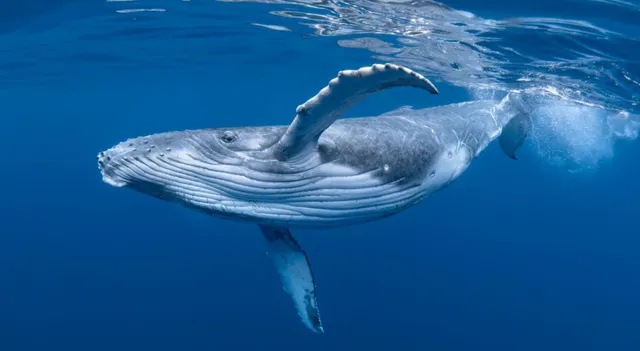- By Ridam Sharma
- Thu, 07 Aug 2025 07:16 PM (IST)
- Source:JND
Largest Animal On Earth: The largest animal on Earth lives in the enormous oceans and is far bigger and heavier than the largest land mammal. The sheer weight of this massive animal is so big that sometimes its tongue alone can weigh as much as an elephant. And yet this giant predator draws food from some of the smallest animals in the ocean, highlighting one of nature's greatest contradictions. Step into the world of the sea and its giant creatures to find out more about its massive size, special adaptations, and the issues it is facing in the present times.
The blue whale (Balaenoptera musculus), a sea giant, is the largest animal on our planet that exceeds even the length and weight of the largest land animals like elephants. Blue whales measure almost 82 to 105 feet (about 30 meters) in length and weigh as much as a staggering 200 tons (about 172,000 kilograms), according to the National Geographic data. Additionally, they live up to 80 to 90 years.
Also Read: Which Insect Has The Most Powerful Sting In The World?
These gigantic sea mammals possess hearts the size of compact cars, and the tongues of these whales alone can weigh up to an elephant. However enormous they are, blue whales tend to feed on nearly all tiny krill, eating as much as 8,000 pounds of small sea animals each day of feeding season. Their gigantic bodies are torpedo-shaped for swimming, with gliding bluish-grey skin dotted with mottled patches produced by barnacles.
| Common Name: | Blue Whale |
| Scientific Name: | Balaenoptera musculus |
| Type: | Mammals |
| Diet: | Carnivore |
| Group Name: | Pod |
| Average Life Span In The Wild: | 80 to 90 years |
| Size: | 82 to 105 feet |
| Weight: | Up to 200 tons |
Source: National Geographic
Blue whales are also famous for their remarkable vocalisation. Their voices can hit an astonishing 188 decibels, nearly as loud as a jet engine and travel hundreds of miles across the ocean floor, possibly used to communicate and find mates over great distances of ocean. However, sad news is that currently, the Blue Whale is critically endangered, and conservation efforts are ongoing for the protection of this giant creature, but still, blue whales remain vulnerable.

